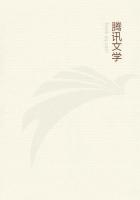"The speaker who hammered nails into a board won thousands of votes."Now the whole of this passage is admirably characteristic of the new journalism which Mr. Pearson represents, the new journalism which has just purchased the Standard. To take one instance out of hundreds, the incomparable man with the board and nails is described in the Pearson's article as calling out (as he smote the symbolic nail), "Lie number one.
Nailed to the Mast! Nailed to the Mast!" In the whole office there was apparently no compositor or office-boy to point out that we speak of lies being nailed to the counter, and not to the mast.
Nobody in the office knew that Pearson's Magazine was falling into a stale Irish bull, which must be as old as St. Patrick.
This is the real and essential tragedy of the sale of the Standard.
It is not merely that journalism is victorious over literature.
It is that bad journalism is victorious over good journalism.
It is not that one article which we consider costly and beautiful is being ousted by another kind of article which we consider common or unclean.
It is that of the same article a worse quality is preferred to a better.
If you like popular journalism (as I do), you will know that Pearson's Magazine is poor and weak popular journalism. You will know it as certainly as you know bad butter. You will know as certainly that it is poor popular journalism as you know that the Strand, in the great days of Sherlock Holmes, was good popular journalism.
Mr. Pearson has been a monument of this enormous banality.
About everything he says and does there is something infinitely weak-minded. He clamours for home trades and employs foreign ones to print his paper. When this glaring fact is pointed out, he does not say that the thing was an oversight, like a sane man.
He cuts it off with scissors, like a child of three. His very cunning is infantile. And like a child of three, he does not cut it quite off.
In all human records I doubt if there is such an example of a profound simplicity in deception. This is the sort of intelligence which now sits in the seat of the sane and honourable old Tory journalism.
If it were really the triumph of the tropical exuberance of the Yankee press, it would be vulgar, but still tropical. But it is not.
We are delivered over to the bramble, and from the meanest of the shrubs comes the fire upon the cedars of Lebanon.
The only question now is how much longer the fiction will endure that journalists of this order represent public opinion.
It may be doubted whether any honest and serious Tariff Reformer would for a moment maintain that there was any majority for Tariff Reform in the country comparable to the ludicrous preponderance which money has given it among the great dailies.
The only inference is that for purposes of real public opinion the press is now a mere plutocratic oligarchy. Doubtless the public buys the wares of these men, for one reason or another.
But there is no more reason to suppose that the public admires their politics than that the public admires the delicate philosophy of Mr. Crosse or the darker and sterner creed of Mr. Blackwell.
If these men are merely tradesmen, there is nothing to say except that there are plenty like them in the Battersea Park Road, and many much better. But if they make any sort of attempt to be politicians, we can only point out to them that they are not as yet even good journalists.














